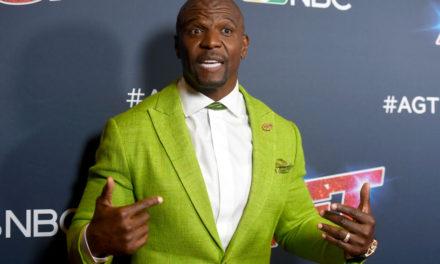
=
You’ve probably heard the advice to never talk to strangers about religion or politics during small talk. Ironically, religion cuts to the core of many worldviews and cultures but in the US, religion normally lies dormant until someone wakes it up. This isn’t because the US is not religious—on the contrary. Although the ways that Americans express their religious and spiritual beliefs are changing, the numbers of self-reported believers of all faiths remain high. The ubiquity of religious ideals in our culture make our inability to talk about religion that much more surprising. Watch us fumble over and confuse religious concepts the next time the media covers a religious topic. Broadly speaking, we don’t have the same precision and finesse in talking about religion as we do for other dimensions of diversity.
Yesterday, Bomani Jones and Chris Broussard, two ESPN analysts, went back and forth on Twitter over Seahawk’s quarterback, Russell Wilson’s announcement that he and girlfriend Ciara would be practicing sexual abstinence after “God spoke” to him to lead her. You can read the full exchange in the link above, but I thought several points in their exchange were telling of how we as a culture typically discuss religion in the public square. The basic argument stemmed from Jones stating that the decision to abstain from sex for God was stupid, counterproductive, and usually an attempt at controlling female sexuality (that’s my summary from several exchanges between Jones-Broussard and their onlookers), while Broussard pleaded for more tolerance, called Jones out for targeting Christians and asserted that saving sex was serving the Lord. Like most things that make headlines, this exchange wasn’t very thought provoking or controversial on either end—but it stirred up attention, which is all that really matters in TV land. It wasn’t like these guys were debating the cornerstones of monotheistic faith—they disagreed about the meaning(s) of sex. But the underlying assumptions that guided their discussion are what interested me most.
Broussard, as the defender of the Christian practice of abstinence, accused Jones of specifically targeting Christian beliefs and leaving out what he called “politically correct ones”—naming Islam as an example. Although Jones agreed that he would equally think abstinence was stupid regardless of religious affiliation, I think it’s telling that he didn’t start there. Would Jones have been as confident to critique another faith with such boldness? It makes me wonder if there is something about the nature of the Christian faith—or more likely—the US’s historically close relationship with it, that has made it easier to critique and open to jokes. And if so, how much of our public critiques of religion at large really stem from an elementary reaction to deeply held Christian values. In fact, I read the exchange between the two analysts while thinking that their disagreement stemmed from a lack of cultural competence—and not so much over the issue at hand. I think each had a limited conception of the other’s worldview.
Jones’ critique, although valid, was a sweeping generalization and a too simplistic view of the practice of abstinence. And Broussard similarly didn’t acknowledge Jones’ genuine skepticism and assumed that he knew more than he did about the practice. I can’t fault Jones too much for using the strong language of “stupid” given his profession demands holding polarized views for ratings. But Broussard’s insistence for more tolerance still stands. Assuming this was a serious debate amongst two genuinely interested parties—and I’m not so sure this was that—each could have benefited from a more robust view of each other’s starting point. Skeptics of religious ideals and practices should be explicit about their own beliefs about the world if they’re willing to offer critiques of others. In this case, Jones tells us what he thinks is wrong with abstinence, but doesn’t go into length about his own position on sexual practices. It wasn’t really his point, but it’s always easier to critique than construct. And religious believers carry the burden to hold onto their beliefs while understanding that not everyone will share those beliefs or even be able to relate or comprehend them—and that’s ok. Its exchanges like this one that remind me of the importance of cultural competence around religion—a topic that many practitioners have called the elephant in the room of diversity work.


















